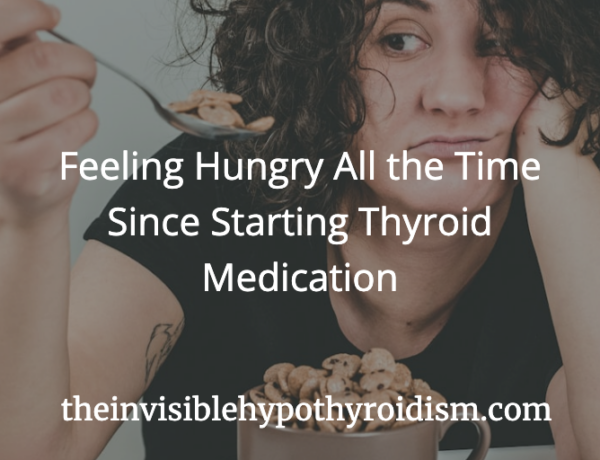Originally published on 16th April 2020 Last updated on 2nd August 2024
One of my biggest concerns while being pregnant and taking daily thyroid medication for my hypothyroidism, was morning sickness.
We are most often advised to take our thyroid medication in the morning (particularly the types that contain T3; T4 medication can be taken at nighttime [1]), and morning sickness can be at its worst in the morning. However, it can strike any time of day.
I was worried about not absorbing as much of my thyroid medication as usual whilst pregnant due to morning sickness, which can be problematic since we need to maintain optimal thyroid hormone levels during to support the pregnancy and developing baby.
Here are some tips for maximising getting as much as possible from your thyroid medication whilst experiencing sickness.
Don’t forget that The Positive Thyroid Pregnancy Book: Your Essential Guide to Navigating Fertility, Pregnancy & Postpartum Wellness With Hypothyroidism and Hashimoto’s also covers my two pregnancies with hypothyroidism and Hashimoto’s in a lot of detail, while also compiling ALL the info you need to know for the best start for you and your baby.
1. Check if Your Medication Can Be Taken Sublingually
It can be worth checking if your thyroid medication can be taken sublingually (under the tongue).
We have a small pair of salivary glands under the tongue, where your thyroid pill can be placed in order to be absorbed straight into the bloodstream, bypassing the stomach so that even if you are sick shortly afterwards, you won’t bring any of it back up.
Many thyroid patients already take their natural desiccated thyroid medications sublingually (such as Armour and Naturethroid), but it’s worth knowing that switching to taking it this way when you usually swallow it orally, may mean that you’re suddenly getting more thyroid hormone than usual, and could need a slight decrease in dosage. So check with your doctor first about changing the way you take your medication and ensure you’re being tested and monitored regularly.
2. Find The Best Time of Day
It is worth tracking when your morning sickness strikes in case there is a pattern. It may make more sense to take your thyroid medication at a time which is clear of the sickness and lets you absorb as much of it as possible.
My morning sickness would strike at midnight, with me taking my thyroid meds in the morning, so it luckily didn’t interfere, but many people experience morning sickness in the morning.
For those taking T4-only medications such as Levothyroxine and Synthroid, these can be taken in the evening [1], but T3-containing medications can keep you awake at night, so are often not recommended for this.
If you take your medication at any other time than first thing in the morning and before food, then try to take it at least two hours after eating and an hour before eating again, to allow it to be absorbed without interference. For example, if you have lunch at 12pm and an afternoon snack at 4pm, taking it at 2pm or 3pm could work.
The key here is consistency. If you have to take it after eating as opposed to first thing in the morning and before breakfast, be consistent so that your thyroid levels are easier to monitor and manage.
3. Take Your Medication After Eating
Some women with morning sickness wake up feeling incredibly nauseous and need to eat straight away to relieve symptoms. If this is the case, then again, wait at least two hours before taking your thyroid meds and ensure you don’t eat anything else for at least an hour.
4. Ask About Injections
It can be worth asking your doctor if an injectable version (or any other version) is available.
5. Ask About Anti-Nausea Meds
Your GP may also be able to provide medications for the sickness and nausea which allow you to keep your thyroid meds down.
Conclusion
Always discuss any concerns regarding your thyroid medication in pregnancy with your primary care provider or pharmacist, including if you are concerned that you’re not absorbing enough of your thyroid hormone replacement medication. They may have other suggestions for optimising absorption, but should always be kept in the loop with any changes you make, including how and when you take your medications.
Did you experience this issue? Let me know in the comments.
See more posts in the ‘Pregnancy’ category here.
Related post: 13 Things I Did to Have a Healthy Pregnancy With Hashimoto’s and Hypothyroidism
References:
[1] https://www.ncbi.nlm.nih.gov/pubmed/19584184





